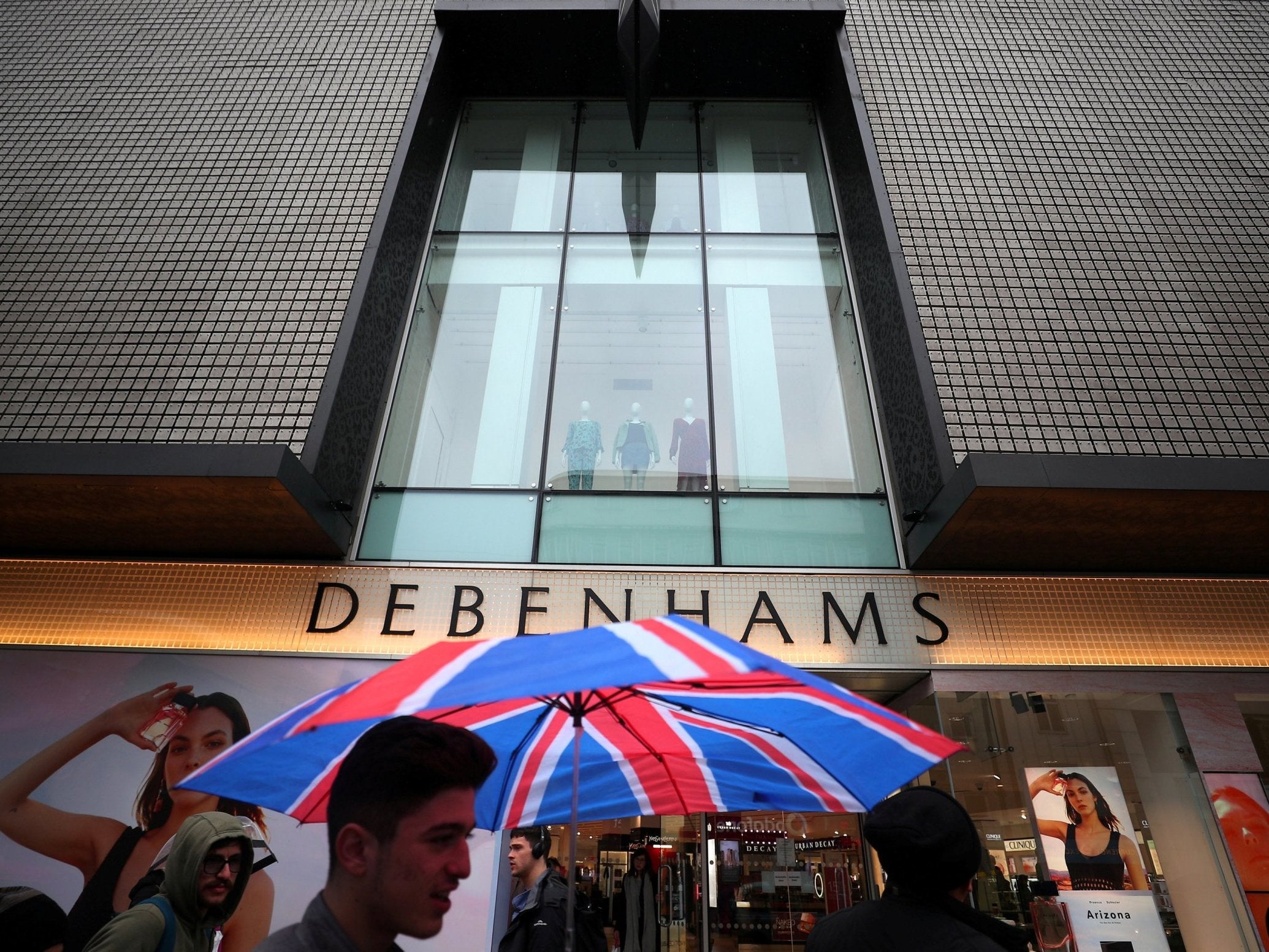Debenhams is on the brink, but is there a retail genius out there who can hold back the online tide?
This is a story about a business being slow to adapt, but also about how a charismatic individual like Elon Musk or Jeff Bezos, or maybe even Mike Ashley, can wrestle companies past their problems


Your support helps us to tell the story
From reproductive rights to climate change to Big Tech, The Independent is on the ground when the story is developing. Whether it's investigating the financials of Elon Musk's pro-Trump PAC or producing our latest documentary, 'The A Word', which shines a light on the American women fighting for reproductive rights, we know how important it is to parse out the facts from the messaging.
At such a critical moment in US history, we need reporters on the ground. Your donation allows us to keep sending journalists to speak to both sides of the story.
The Independent is trusted by Americans across the entire political spectrum. And unlike many other quality news outlets, we choose not to lock Americans out of our reporting and analysis with paywalls. We believe quality journalism should be available to everyone, paid for by those who can afford it.
Your support makes all the difference.The demise of Debenhams is a familiar story, though a sad one. But it is one that carries an intriguing twist. The story first, then the twist.
Back in the 1950s Debenhams was Britain’s largest department store group. Its ownership changed several times but when it was floated on the stock market in 2006, it was valued at £1.6bn. Three years ago, after a tough decade, it was still worth nearly £1bn. Now its shareholders will probably get nothing.
By putting the company in administration the board has ensured that the business carries on for the time being, but expect there to be a rapid decline in the number of outlets, and I am afraid job losses among its 27,000 staff.
That is the first element of the story: another high street and shopping mall retailer that has been unseated by the shift to online. Debenhams did expand its online sales side but the legacy of all that property on expensive leases was too great a burden to carry. Maybe the management should have moved faster to cut costs. But given the whirlwind sweeping through the way we buy stuff, it would have required a retailing genius to have saved it.
The second element to the story is society’s response.
There is a practical question: what happens to Debenhams’ sites? Some will remain trading for a while at least, but long term we have to ask what is to be done with the high street and with shopping malls.
As far as high streets are concerned, the pattern has been to provide services rather than sell goods. So shops become restaurants or hair salons. This has saved some well-run towns and cities, but many still struggle.
As for shopping malls, the outlook is not good at all. It is estimated that in the US up to a quarter of all malls will close in the next five years and we should expect an equally swift decline here.
Now the twist.
This is a story about a business being slow to adapt to social change, but it is also a story about how one charismatic individual might have been able to change things.
The individual is Mike Ashley, the controversial owner of Sports Direct, Newcastle United and, since last year, House of Fraser. He built up a substantial minority shareholding in Debenhams and has been involved in a public row with the board. He wanted to take full control of the group but the offers he made were rejected, and the board chose what is called prepackaged administration instead.
There are two ways of looking at this. One is to focus on the personalities – the colourful self-made entrepreneur versus the hard-nosed financiers – and see this as a boardroom clash.
It is certainly that. Boardroom battles do hit the headlines. But there is something else here that takes the story beyond the row. It is whether a commercial genius (and whatever you think of him, Mike Ashley is that) can rescue businesses that otherwise would fail.
There are many other examples of individuals who seem to manage to break the rules.
Elon Musk is one, with Tesla shaking up the entire car industry. Sir Richard Branson is another, managing to make money out of airlines and trains, two really difficult businesses. Tim Martin, with Wetherspoon, is another, for pubs are a fast-declining trade. And who on earth could think that you can make money out of vacuum cleaners... other than James Dyson?
In the case of Debenhams we don’t know the next twist of this tale. I suspect that Mike Ashley will end up buying a fair chunk of the business off the administrators, but we will see. But the issue that should intrigue us all is the way some people are able to make a success in the most difficult of circumstances.
Next time you pick up your iPhone to order something from Amazon you are doing exactly what, multiplied billions of times, undermined legacy retailers such as Debenhams. But you are also paying tribute to the late Steve Jobs and to Jeff Bezos. They both faced tough times too.
Join our commenting forum
Join thought-provoking conversations, follow other Independent readers and see their replies
Comments